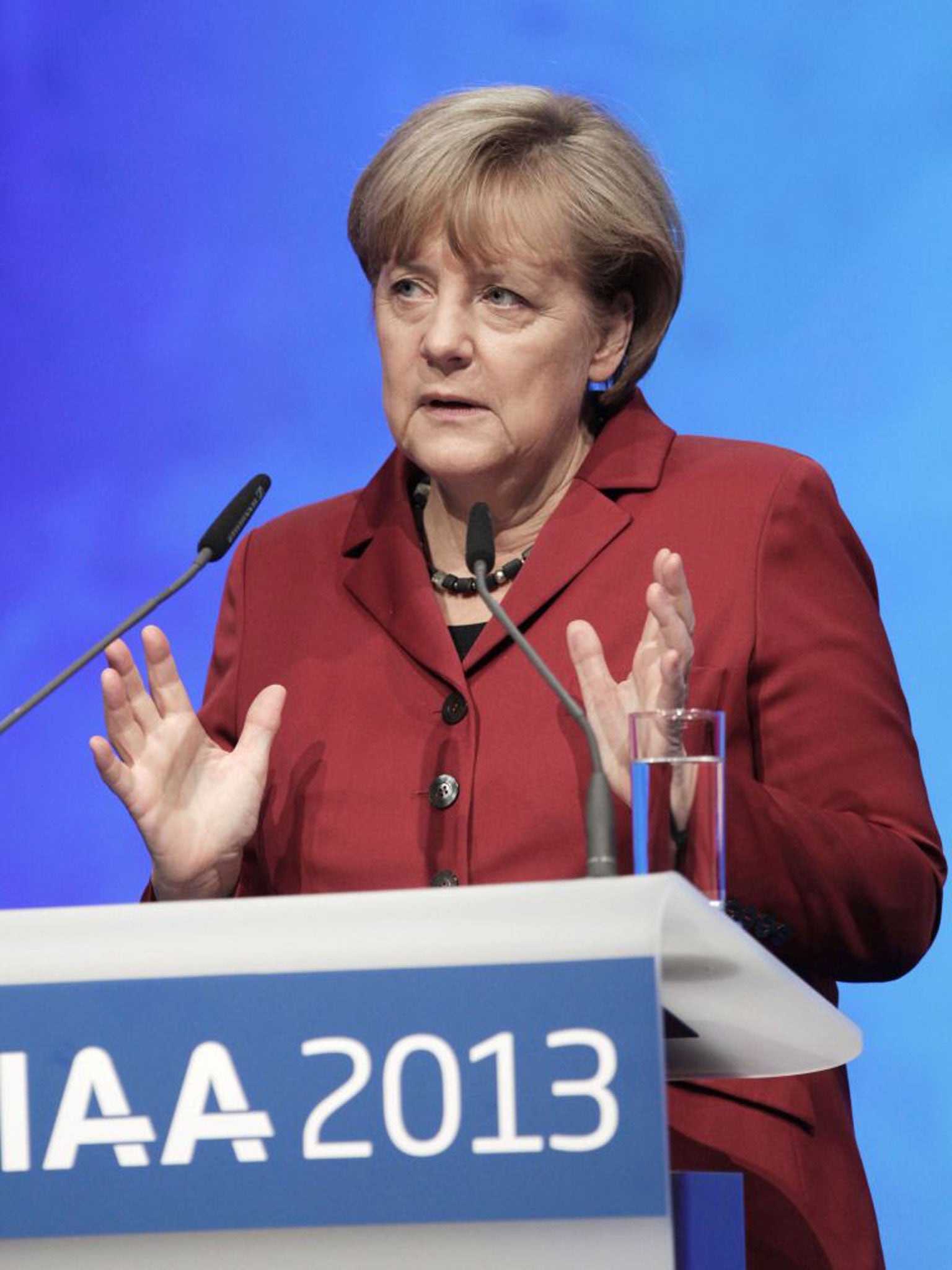Bavarian poll may shape Angela Merkel’s new German government
State’s conservatives seek absolute majority a week ahead of national elections

The shape of Chancellor Angela Merkel’s future government could be outlined on Sunday when the Bavarian branch of her conservative party goes to the polls in one of Germany’s most prosperous states in a vote seen as a litmus test for next week’s general election.
Bavaria’s governing Christian Social Union (CSU), the sister party to Ms Merkel’s ruling Christian Democrats, is facing a key state run-off against the opposition Social Democrats just one week ahead of Germany’s full general election, which takes place on 22 September.
Horst Seehofer, Bavaria’s CSU Prime Minister, is banking on winning an absolute majority in the state, which would enable him to end his current coalition government with the faltering, pro-business liberal Free Democrats: “I want the CSU to be the only governing party in Bavaria,” he insists. With her party enjoying a steady lead of nearly 10 per cent over its nearest rivals at a national level, Ms Merkel is not dependent on winning in Bavaria. However, the CSU’s ruling alliance with the Free Democrats in Bavaria mirrors the line-up in Ms Merkel’s coalition.
If the Free Democrats lose in Bavaria, pundits argue that the party will most likely fail to win the necessary five per cent of votes to enter parliament in Berlin. Such an outcome would then oblige Ms Merkel to form a national “grand coalition” government with the opposition Social Democrats, which could force her to soften her current hard line austerity policies on Europe. Ms Merkel’s first government in 2005 was a grand coalition.
The conservative CSU has ruled unbroken in Bavaria for 55 years, prompting charges that it is a “one-party” state. It sees itself as the driving force behind the state’s enviable prosperity. Bavaria has the lowest unemployment rate in Germany, running at just 3.8 per cent. It is also home to major German companies such as BMW and Siemens.
Mr Seehofer’s CSU looks set to romp home to victory on Sunday. His party is enjoying popularity ratings that are enough to make Angela Merkel jealous. The CSU is polling at 48 per cent, placing it some 28 points ahead of its nearest rival, the opposition Social Democrats led by Munich mayor, Christian Ude.
The 64-year-old Bavarian leader, who is the son of a lorry driver, has been annoying Ms Merkel during his campaign by calling for a road tax for foreigners, an idea which the Chancellor has publicly slapped down. But Mr Seehofer has only benefited from the spat, having shown that he is one of the few male conservatives left who are prepared to confront Germany’s seemingly omnipotent leader.
The CSU is hoping that, by obtaining an absolute majority, it will be able to ditch its Free Democrat coalition partners and rule the state on its own.Such an outcome is unlikely to be on the cards for Angela Merkel in a week’s time, although Heinrich Oberreuter, a Bavarian political scientist, said that if the CSU does well in the state election it would send a “strong signal” for the conservatives overall.
He told Der Spiegel online that a defeat for the liberals in Bavaria could also motivate tactical voters who believe that Germany needs a pro-business party in its national government to support them at the polls in the general election a week later.
Subscribe to Independent Premium to bookmark this article
Want to bookmark your favourite articles and stories to read or reference later? Start your Independent Premium subscription today.

Join our commenting forum
Join thought-provoking conversations, follow other Independent readers and see their replies